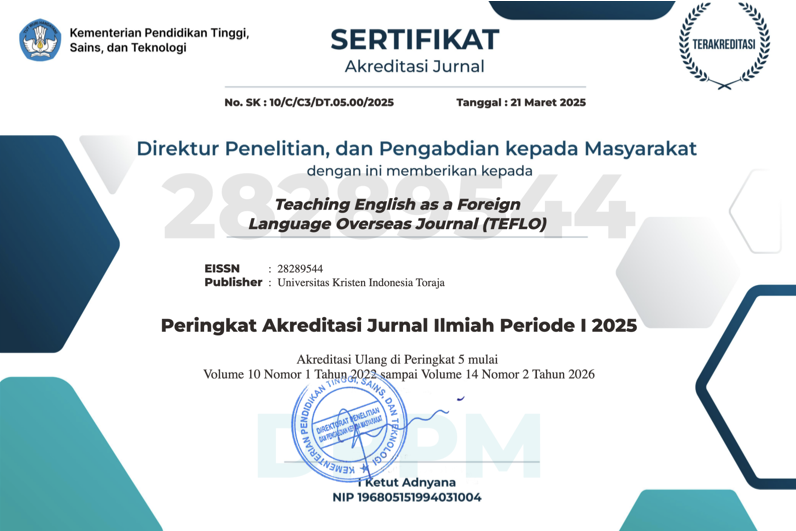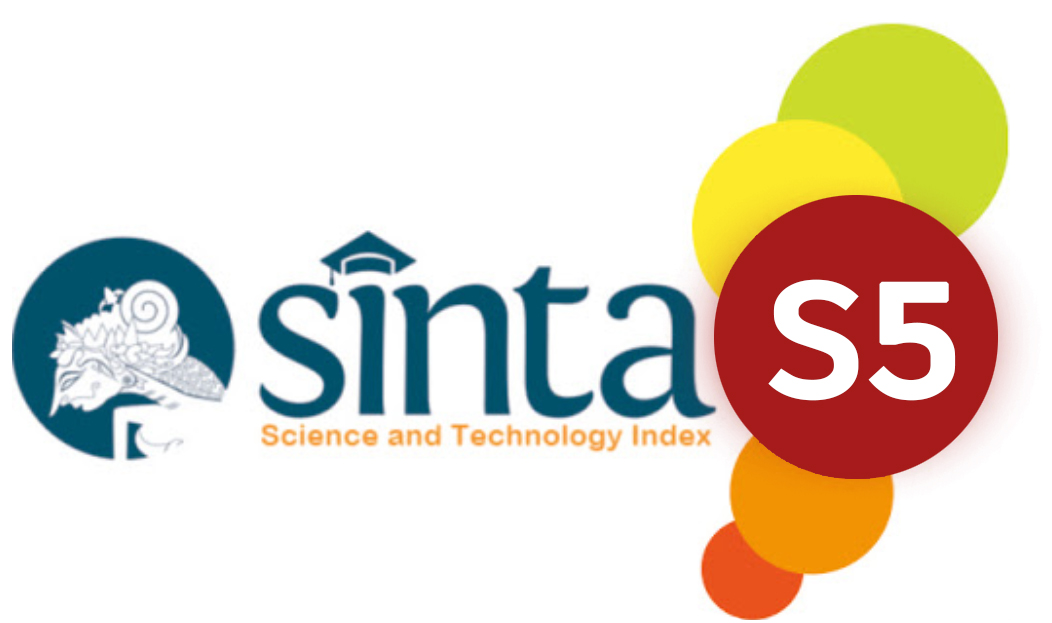IMPROVING READING COMPREHENSION ABILITY USING THE CREATIVE SIMULATION METHOD STUDENTS OF CLASS V SD INPRES MACCINI SOMBALA I MAKASSAR CITY
DOI:
https://doi.org/10.47178/teflo.v10i3.2000Keywords:
Reading Comprehension, Creative SimulationAbstract
This type of research is classroom action research (PTK) which is divided into two cycles of 3 meetings with 4 stages, namely planning, action, observation and reflection which are carried out repeatedly. The reading comprehension ability of class V SD Inpres Maccini Sombala 1 City is still below the Minimum Completeness Standard (KKM). This is because in class management, the presentation of material is still monotonous so students are less interested in learning to read. The teacher's dominance in the learning process so that students are less interested and passive in receiving lessons. Conditions like this will be solved through the use of creative simulation methods. Increasing the average ability score reading comprehension of students during this research was conducted, namely 65.68 in cycle I and to 86.88 in cycle II. And the learning mastery of students' reading comprehension skills also increased, namely in cycle I of 25 students only 11 people or 44% who completed it increased to 23 people or 92% in cycle II. Increased reading comprehension skills from cycle I to cycle II caused by student learning activities that are relevant to learning also experienced a quite encouraging increase, where students who Pay attention to the teacher's explanation, students who ask questions, students who answer questions from the plays read, students doing simulations in front of the class, and students asking questions increased to very high category.
References
Abdurrahman. (1999). Teaching Management. Point of View: South Star.
Abhimanyu, S., Daruma, AR, and La Sulo, SL. (2005). Educational Psychology. Makassar: FIP UNM.
Ahmadi, A and Joko Triprasetyo. (2005). Teaching and Learning Strategies. Bandung: CV. Faithful Library.
Arikunto, Suharmisi, Suhardjono, and Supardi. (2008). Class Action Research. Jakarta: Earth Script.
Dalman. (2014). Reading Skills . Jakarta: Rajawali Press
Djamarah, Syaiful Bahri. (2002). Learning Psychology. Jakarta: Rineka Cipta.
_________, and Zain, Aswan. (2002). Teaching and Learning Strategies. Jakarta: Rineka Cipta.
Dediknas. (2003). Implementation of Content Standards and Graduate Competency Standards. Jakarta: Permendiknas.
Iskandarwassid, et al. (2009). Language Learning Strategies. Bandung: Rosdakarya Youth.
Nurhadi. (2005). Fast and Effective Reading. London: YES3.
Rahmawati. (2009). Improving Reading Comprehension Ability through the Simulation Method of Class V Students at SDN Romangplong, Gowa Regency.
Rahim, Rahman. (2011). Language Learning Theory. Diktat. Makassar: Makassar Muhammadiyah University.
Roestiyah, NK. (2001). Teaching and Learning Strategies. Jakarta: Rineka Cipta.
Santos, et al. (2009). Elementary Indonesian Material and Learning. Jakarta: The Open University.
Ahmad, Nurfahmi. (2020). "The Application Of The Reciprocal Teaching Learning Model To Improve Reading Comprehension Skills In Grade Iv Students Of Sd Inpres Bangkala Iii Makassar City."
Nureni, N. (2021). Application Of The Creative Simulation Process Approach In Learning Reading Comprehension In Students. Dahzain Nur: Journal of Education, Islam and Society, 11(2), 37-52.
Ahmad, N. (2020). Application Of The Reciprocal Teaching Learning Model To Improve Reading Comprehension Skills In Grade Iv Students Of Sd Inpres Bangkala Iii Makassar City.













